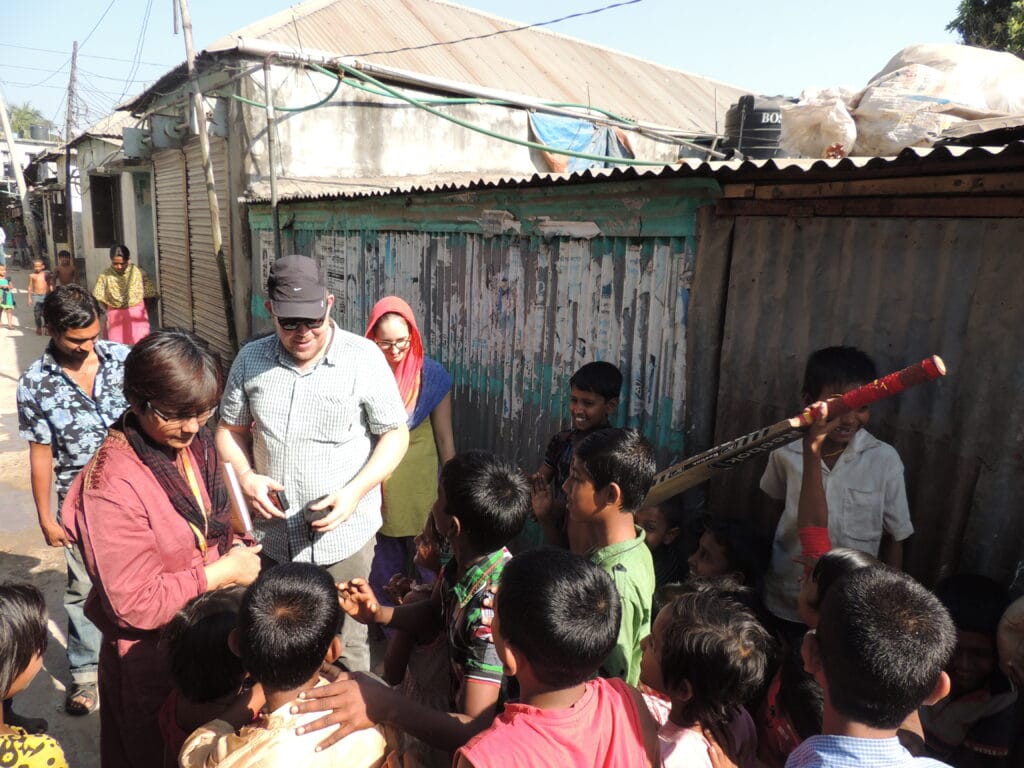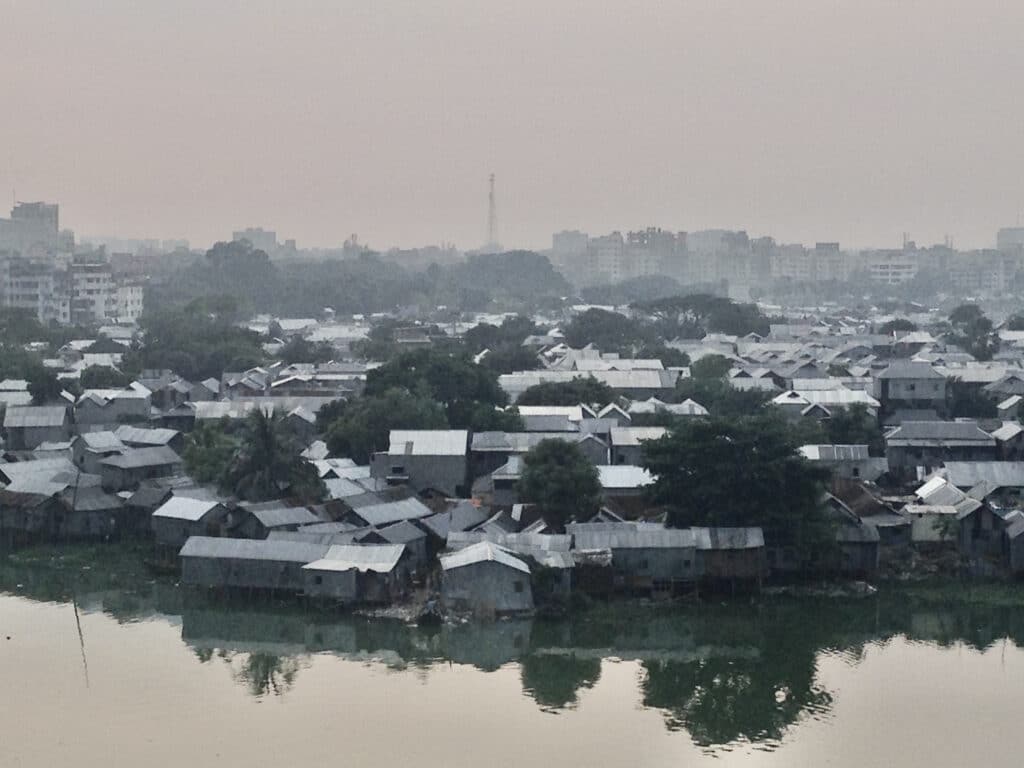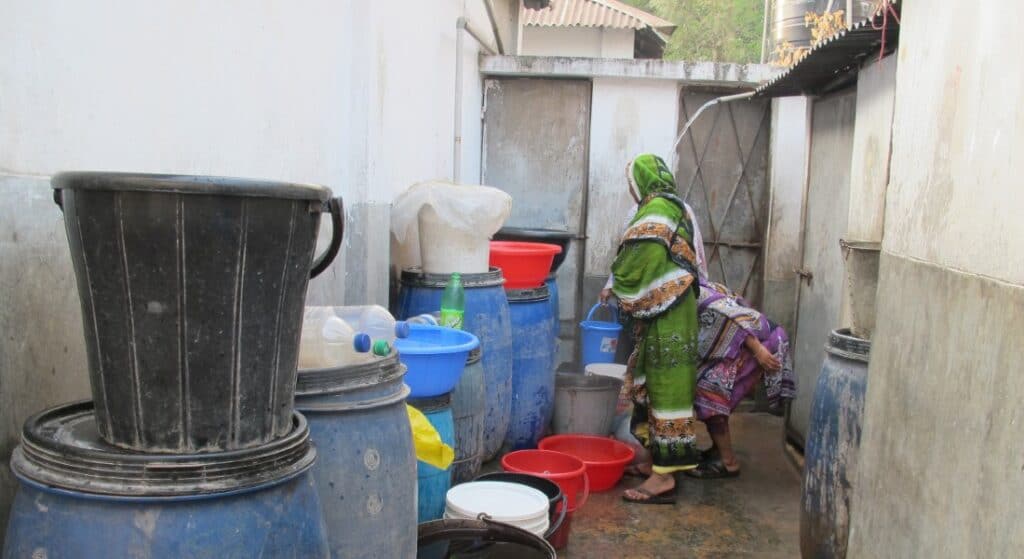The fight against diarrheal diseases in Bangladesh
20-03-21

The School of Global Health, University of Copenhagen, first published this article 19 March 2021. We bring an extract. Read the article in full
She has investigated the correlation between diarrheal diseases, cholera transmission and climate change in one of Dhaka’s low-income communities. She now criticises existing hygiene interventions. You need to design your messages to fit the community, says Rebeca Sultana PhD student under the Danida funded project Combating Cholera Caused by Climate Change.
By School of Global Health//Morten Mechlenborg Nørulf
The Danida funded research project Combating Cholera Caused by Climate Change is coming to an end. It has taken six years and has produced five PhDs, the final one being by Rebeca Sultana about ‘water usage, diarrhoea and the economic burden in a low-income urban community in Bangladesh’.
As an anthropologist, Rebeca Sultana was interested in learning more about context and the communities affected by the disease and the questions she seeks answers to in her research reflected it: What is the source of infection? How does it happen? How does one person transmit it to the next? And how is the community dealing with it all?
Preventing faecal bacteria from entering the body
Preventive interventions to stop cholera bacteria from entering the human body has been going on for a very long time. Diarrheal disease transmission happens when a faecal bacterium enters a human host through a medium – often referred to as the five Fs of faecal-oral transmission routes: fluids, fingers, flies, foods, and fields.
“In preventive interventions, you are working with two barriers with regards to transmission. The first one is about preventing faeces from entering the mediums. Therefore, it is about improving water and sanitation infrastructure. In the secondary barrier, we try to prevent the contaminated mediums from entering the mouth. This is often the reality in low-income communities as they have poor water and sanitation infrastructure. Here, the interventions need to focus on behavioural change, such as washing hands and other hygiene practices, as well as providing bacteria-free water, explains Rebecca Sultana

In her thesis, Rebeca is criticising existing hygiene interventions that focus on the motivation to wash your hands. To her, hygiene is a social practice and we need to come up with new messages that will encourage people to practice good hygiene. Telling people that you will be germ-free from washing hands is not enough.
Rebeca thinks we need to understand the social and cultural practices, if we want to come up with something different in order to prevent transmission:
“It is interesting to look at religious practices in relation to this matter. Muslim people who pray five times a day are using more water and they are much more concerned about their hygiene practices, and they are more conscious and careful when they clean themselves for religious purpose. So incorporating religious perspectives as the motivation of hygiene practices may help to improve hygiene practices instead of only aiming for germ-free bodies as motivation, which should be explored in the future effort” Rebeca argues.
When you work with post-outbreak interventions or disease preventive efforts in urban communities in Bangladesh, you need to design your messages to fit the community:
Combine the biomedical knowledge and the community knowledge and translating both together to come up with a new knowledge, which both the public health research practitioners, as well as the local community you are working with understand, is essential. If the message is not clear, how will the practitioners working to prevent the disease be successful, Rebeca reminds us.
In the last 30 years, we have seen numerous efforts when it comes to improving peoples’ hand hygiene and other hygiene practices. Globally, only 19% of people comply with hand hygiene recommendations. Rebeca is however hopeful:
It’s not easy to change people’s behaviour but I am sure that health and hygiene research, like the one we are doing here, will come up with some new technologies and methods, which will prove useful in terms of changing peoples’ hygiene practices.

The cholera-phone
A research team including Rebeca came up with a community-based surveillance system to detect disease. Using mobile technology for disease surveillance is not new but it is the first time it has been used to survey diarrhoea and cholera in the community.
We came up with the Cholera phone – a mobile phone disease prevalence data collection system – that worked really well in combination with qualitative research. We gave the participants in the study a mobile phone so they could do the reporting to us. This disease surveillance system could be used in other contexts or places. People today have mobile phones, even in the most remote places. More than 90% of people in Bangladesh have mobile phones, many of which are smartphones. So there is potential to develop this disease surveillance method further, maybe with a new app, Rebecca says
Read the full article here https://globalhealth.ku.dk/news/2021/the-fight-against-diarrheal-diseases-in-bangladesh/
Combating Cholera Caused by Climate Change in Bangladesh (C5) is a multi-disciplinary study that examines the risk and effects of climate-induced cholera on water stress on household hygiene in Bangladesh. The objective of the research project is to provide a holistic understanding of low-income community life in terms of water stress, diarrhoea and cholera. The project included five PhDs looking at it from five different perspectives: public health, anthropology, two microbiology researchers and an environmental engineer. It is a joint project between UCPH, Dhaka University and icddr,b, funded by DANIDA.
Go back to our stories
